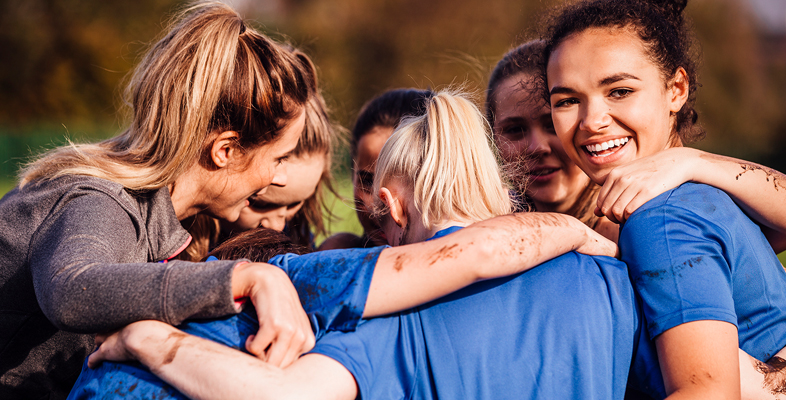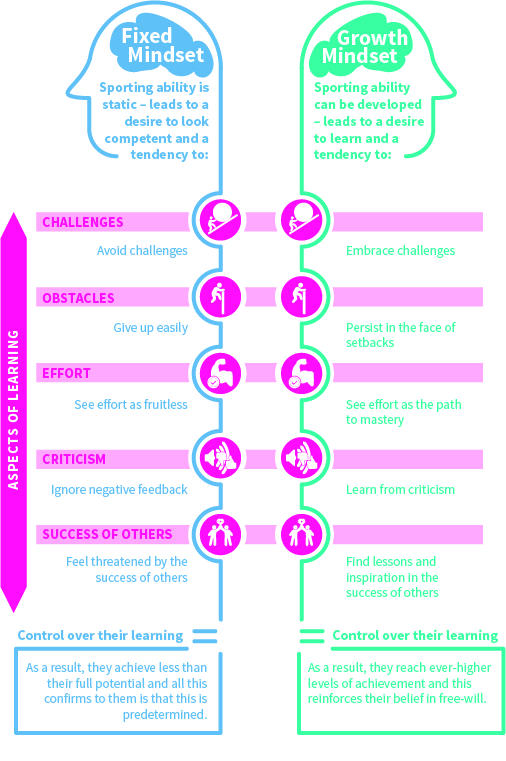2 Your experience of ‘mindset’
Carol Dweck has found that people generally hold one of two firm beliefs about their ability: they consider it to be either a fixed trait or something that can be improved over time with effort. She calls these the fixed and growth mindsets, and there is persuasive evidence that mindset can seriously influence performance in the long run.
If you want to see how she came to these conclusions, the video Carol Dweck: the effect of praise on mindsets [Tip: hold Ctrl and click a link to open it in a new tab. (Hide tip)] summarises some key experiments using puzzles with schoolchildren that shaped her theory (Mueller and Dweck, 1998).
Activity 1 Explore mindset from your own experience
Failure, mistakes and feedback are part of the DNA of sport and, as you saw in Session 3, they are also a feature of education and the teenage years. Figure 1 summarises Dweck’s theory. To what extent do you recognise the different approaches to challenges, obstacles, effort, criticism and the success of others?
Discussion
The different approaches to aspects of learning in the left-hand column provide some attitudes and behaviours that you may have encountered. They can either hinder or help learning, although it might not be quite as clear cut as a fixed or growth mindset as is shown in the table. Notice how in the ‘success of others’ row, there is a strong connection to what you learned in Session 3 about role models: ‘finds lessons and inspiration in the success of others’ clearly describes the potential impact of role models.
Some of the things Bradley Busch said about mistakes and failure among teenagers in Session 3, Activity 3 also links to these ideas of a growth mindset.
The claimed difference in the overall ‘control over their learning’ is stark between those with a pre-determined (fixed) mindset and those with a free-choice (growth) mindset.

